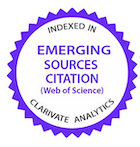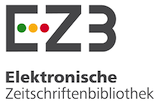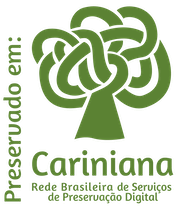Avaliação da toxicidade aguda do extrato hexânico de frutos de Melia azedarach (MELIACEAE) em camundongos
DOI:
https://doi.org/10.5216/cab.v13i4.15179Palavras-chave:
Melia azedarach, extrato hexânico de frutos verdes, camundongos swiss, toxicidade aguda, histopatologiaResumo
Melia azedarach em camundongos. Foram compostos dois grupos tratados, sendo um para cada dose, 300 mg/kg e 2000 mg/kg. Para cada grupo tratado foi utilizado um grupo controle não tratado. Todos os grupos foram compostos por seis animais, sendo três de cada sexo. Os animais foram avaliados aos 30 minutos, 1h, 2h, 4h, 6h, 12h e 24h e a partir de então diariamente, até o 14º dia após o tratamento, seguindo o screening hipocrático. A cada três dias, eles foram pesados e o consumo de ração foi medido. Foi avaliada a presença de alterações macroscópicas e microscópicas no coração, rins, pulmão, fígado, baço, intestinos e cérebro. Em ambas as doses nenhuma alteração em relação ao screening hipocrático foi observada. Somente os camundongos machos tratados com 2000 mg/kg apresentaram consumo de ração menor que o controle, mas, ainda assim, o ganho de peso foi semelhante entre os grupos. Não houve diferença significativa quanto ao peso dos órgãos entre os grupos, nem foram observadas alterações macroscópicas. Não foram encontradas alterações histopatológicas, com exceção de alterações pulmonares como hiperemia, hemorragia e edema nos grupos tratado e controle. Pode-se concluir que o extrato hexânico de frutos verdes de M. azedarach não apresenta toxicidade aguda sobre camundongos Swiss.
PALAVRAS-CHAVE:camundongos swiss; extrato hexânico de frutos verdes; histopatologia; Melia azedarach; toxicidade aguda.
Downloads
Publicado
Como Citar
Edição
Seção
Licença
Copyright (c) 2012 Ciência Animal Brasileira / Brazilian Animal Science

Este trabalho está licenciado sob uma licença Creative Commons Attribution 4.0 International License.
Autores que publicam nesta revista concordam com os seguintes termos:
- Autores mantém os direitos autorais e concedem à revista o direito de primeira publicação, com o trabalho simultaneamente licenciado sob a Licença Creative Commons Attribution que permite o compartilhamento do trabalho com reconhecimento da autoria e publicação inicial nesta revista.
- Autores têm autorização para assumir contratos adicionais separadamente, para distribuição não-exclusiva da versão do trabalho publicada nesta revista (ex.: publicar em repositório institucional ou como capítulo de livro), com reconhecimento de autoria e publicação inicial nesta revista.
- Autores têm permissão e são estimulados a publicar e distribuir seu trabalho online (ex.: em repositórios institucionais ou na sua página pessoal) a qualquer ponto antes ou durante o processo editorial, já que isso pode gerar alterações produtivas, bem como aumentar o impacto e a citação do trabalho publicado (Veja O Efeito do Acesso Livre).






























